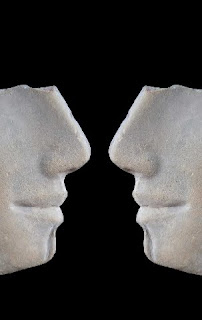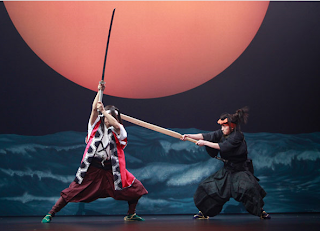 I do like a one-act play. In its best incarnation, you are left wanting more, a theatrical amuse bouche that gives a taste of the potential of all those involved. In the worst-case scenario - well, you're only going to have to sit through 20 or 30 minutes before you can cleanse your palate with some cheap plonk at the bar. In the current Strindberg double bill at the Arcola, both of these experiences are on the menu.
I do like a one-act play. In its best incarnation, you are left wanting more, a theatrical amuse bouche that gives a taste of the potential of all those involved. In the worst-case scenario - well, you're only going to have to sit through 20 or 30 minutes before you can cleanse your palate with some cheap plonk at the bar. In the current Strindberg double bill at the Arcola, both of these experiences are on the menu.The Stronger is deceptively simple. Two women - two actresses - meet in a coffee house on Christmas Eve. One talks, the other ... does not. At all. But although it may be a monologue, this is no soliloquy. While Mme X relies on her full verbal arsenal to express herself, Mlle Y communicates as fully with no more than a slow blink, a clenched jaw, a trembling lip; her sudden laugh at one point is shocking, not least for its unexpected volume. Both actors are stunningly good. Emma Clifford has all the poise and control of expression needed for a woman accused of adultery. Yolanda Vazquez as the voluble Mme X is at once triumphant and frantic, underscoring the uncertainty of who exactly 'the stronger' is by her need to fill Mlle Y's silence with something, anything. Juha Leppäjärvi's clean translation and Jane Bertish's direction successfully bring out the subtleties of Strindberg's tightly plotted scene.
From the sublime to the ridiculous(ly bad), all that is great about The Stronger throws into relief everything that is wrong with Pariah. For starters, I'm not convinced that it's as well written a piece as The Stronger. Where The Stronger lightly hints at what has gone on before, Pariah gets bogged down in details, in complicated back stories, in chests of gold. But matters are not helped by any aspect of the production. The acting is very weak in places and there are also some odd choices as well - whether in the translation or the direction, I'm not sure - such as omitting Mr Y reading a book from Mr X's shelf, a matter on which the whole plot rests. And as is always the way in these things, it is of course the longer of the two pieces. So on the whole, a delightful starter that is compromised by the unpleasant aftertaste left by the second half of the evening.
Tickets:
£14. I missed out on 'Pay What You Can Tuesday' at the Arcola at this one, and had to pay the full price for another night. In fairness, I'd have quite happily paid £10 for The Stronger alone, but £14 was a bit steep for an hour's worth of entertainment. Try for 'Play What You Can', if you can.
Programme:
A free cast list.
Total Cost:
£14
The Stronger / Pariah run at the Arcola from 24th May - 5th June 2010. To book tickets or for more information, visit http://www.arcolatheatre.com/ or phone 020 75031646.







